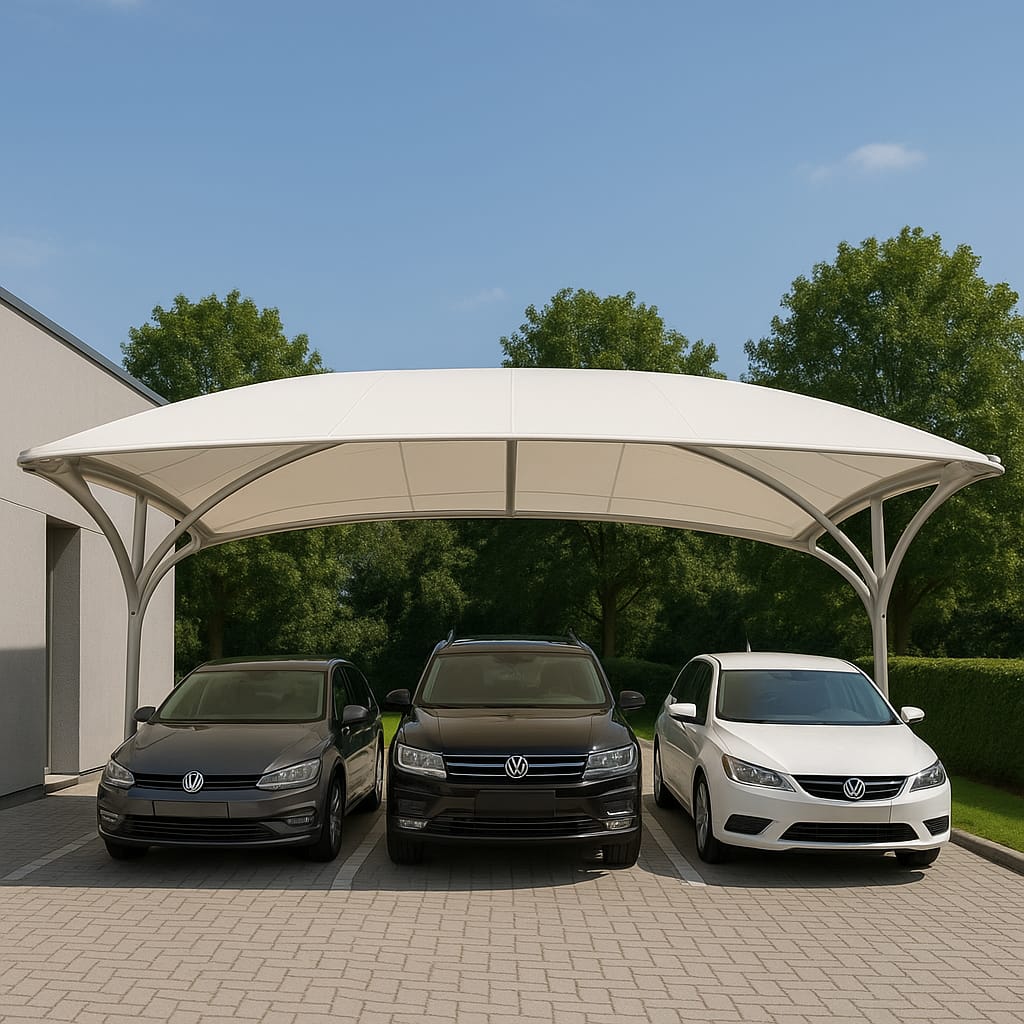The 'Car Park' project in Delhi, completed in 2022, features a tensile walkway cover designed to enhance pedestrian movement within a high-traffic environment. Spanning approximately 2,200 square meters, the structure offers a covered route between key transit or institutional zones, such as terminals, parking lots, or office complexes. The installation provides crucial all-weather protection while maintaining a clean and modern aesthetic. Its tensile membrane design allows for soft, flowing lines that introduce a sense of rhythm and lightness to the circulation space, distinguishing it from conventional overhead structures.
Though no detailed technical data has been released, the overall form and layout suggest a careful focus on passive climate protection, user safety, and architectural consistency. The canopy likely improves thermal comfort by reducing direct sun exposure and controlling glare, which is especially important in Delhi’s hot summers. The lightweight material choices typically associated with tensile systems also contribute to faster installation and easier long-term maintenance, making the structure an efficient addition to urban infrastructure. Open on the sides, the design encourages ventilation while guiding foot traffic along a visually defined path.
The Car Park walkway is not merely a utilitarian cover—it also serves as an integral component of the site’s spatial experience. These kinds of installations can significantly enhance the perception of public or commercial spaces by introducing thoughtful design into everyday routines. Whether part of a larger mobility network or a standalone enhancement, the structure demonstrates how tensile architecture can provide value through both performance and presentation. Its contribution goes beyond practical shelter, helping to shape a more cohesive and engaging environment for users moving through the space on a daily basis.

Delhi